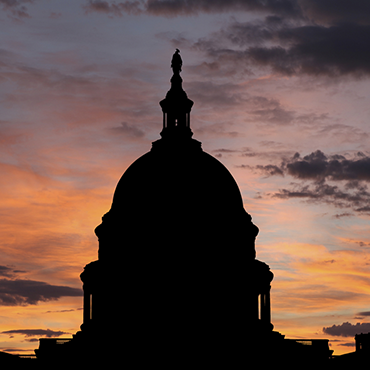Why a transformation commission is good for feds

Legislation before Congress could provide vital support for agencies that are struggling to save money while serving the public.

The Senate and the House have each introduced bills in recent weeks that would establish a Government Transformation Commission. The bills' purpose is to assess, transform and demonstrate results in the efficiency, effectiveness and economy of government programs. If the legislation is enacted, the commission would be the first entity created expressly to ensure that our government's programs save money and are operated effectively.
Government programs have not been assessed at this level of detail so that meaningful and measurable action could be taken. At this difficult time of budget deficits, major cuts are being made and Congress is facing tough decisions with regard to social insurance, tax reform and civil service reform, among others. The operation and management of agency programs must also be addressed to capture efficiency and savings, and to strengthen the government's service to the American people.
Agency leaders would be well served by such a commission. In the current political environment — with its short election cycles and the need to address major domestic and world issues — it is difficult for agency leaders to maintain their focus on efficiency, effectiveness and economy. With Congress frozen by politics and turnover at all levels, lawmakers are largely unable to keep up with government programs and determine if they are effective, efficient, duplicative or outdated. Such oversight is a necessary part of savings and deficit reduction.
The status quo will no longer do. Given the size of the federal government, attention to program efficiency could result in billions of dollars in savings.
The commission, therefore, would become a valuable tool that supports government leaders and provides the resources agencies need to do their work for the American people. For the first time, agency leaders would be able to:
• Have their programs assessed and implement changes without direct cost to the agencies.
• Have employees participate in the effort through reimbursed detail assignments to the commission, where they would collaborate with experts and develop skills they can take back to their agencies.
• Share in cost savings by allowing funds to be applied where they are critically needed.
• Have a Web portal through which agency employees and others can become part of the solution by offering suggestions for improvement and change.
By supporting the hardworking employees, managers and leaders who keep the trains running every day, the commission would provide the perfect opportunity to get the job done. With a dedicated entity responsible for results and accountable to the president and Congress, transparency would be assured.
Given the size of the federal government, attention to program efficiency could result in billions of dollars in savings.
The Hoover Commission did a great job of addressing government efficiency in the 1940s, and the National Performance Review started the dialogue again in the 1990s. It's now time for a statutory tool to finish the work. Under the proposed legislation, the commission would have the authority to assess and make needed changes, in collaboration with agency leaders. It would have the power to conduct hearings, take testimony, and gather necessary data and information. It would be required to report on its progress every six months and on its results every year.
Recommendations requiring legislative action would be subject to a time-limited up-or-down vote for speed and action. Other recommendations would go to the president, and the commission would work collaboratively with agency leaders.
There is no better time to enact this legislation. Our government must become more efficient so that across-the-board budget cuts are not necessary, the American people are best served, their money is used wisely, and federal jobs are not lost or employees furloughed.
NEXT STORY: IG knocks IRS software licensing


